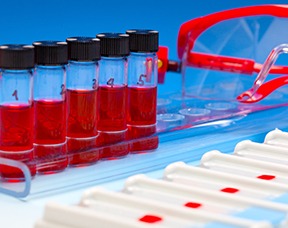A biopsy is a series of tissue samples collected from various areas of the prostate in order to test them in the laboratory for the presence of cancerous cells. A urologist may recommend a prostate biopsy when the previous test results of a digital rectal exam or prostate specific antigen blood test are abnormal or indicative of prostate cancer. Over the course of the last several years however, there has been some controversy as many doctors do not have the same criteria for determining if a man should undergo a prostate biopsy. That’s why it’s important to have a good understanding of the procedure before deciding if it’s right for you.
PSA Guidelines For A Biopsy
A prostate biopsy is normally recommended when the PSA (Prostate Specific Antigen) blood test values are > 4 ng/mL. If the values are between 2.6 – 4 ng/mL, then a prostate biopsy is optional. If the rate of change of PSA values (PSA velocity) over a period of at least 18 months (a minimum of three values needed to calculate PSA velocity) is found to be > 0.35 ng/mL/year, then a prostate biopsy is recommended.
Factors To Consider
Before deciding on whether or not you are a candidate for a prostate biopsy, you should thoroughly review a variety of factors with your doctor. Some of these include the following:
- Family history
- Age
- Ethnicity
- Any prior biopsy findings
- Results of your digital rectal exam
- Results of a PCA3 urine test
Risks Associated With A Prostate Biopsy
Risks associated with a prostate biopsy include:
Rectal bleeding Rectal bleeding is common following a prostate biopsy. Make sure to tell your doctor if you are taking any medications that may aggravate the risk (such as blood thinners).
Blood in your semen Semen often becomes rust-colored or reddish in color after prostate biopsy. This highlights the presence of blood in the semen and it’s usually not something to be concerned about. The reddish tint disappears / resolves spontaneously within a few weeks without requiring any treatment.
Difficulty urinating In some men, a prostate biopsy can cause difficulty urinating after the procedure. In rare cases, a temporary urinary catheter may also be needed.
Infection Rarely, men who undergo a prostate biopsy develop an infection of the urinary tract or prostate that requires treatment with antibiotics.


